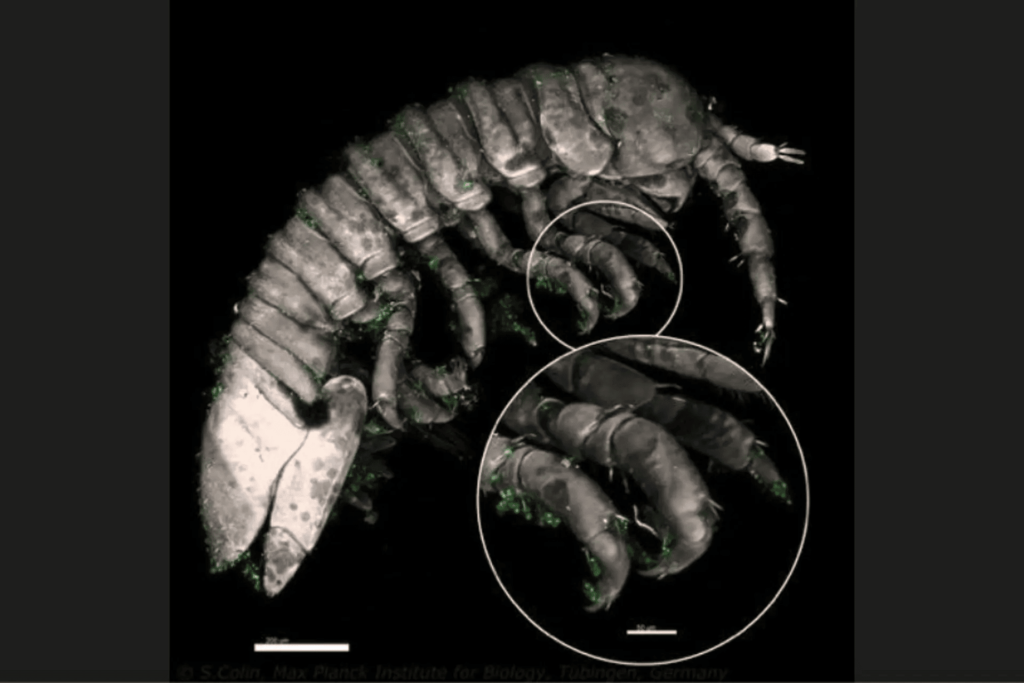
Insects like bees have long been known to help plants reproduce by spreading pollen from plant to plant. A similar mechanism has now been discovered in the underwater world, involving red algae and tiny crustaceans.
The research was carried out by doctoral student Emma Lavaut, from Sorbonne University, and population geneticist Myriam Valero, from the CNRS (National Center for Scientific Research). They collaborated with colleagues from their institutes and from the Universidad Austral de Chile.
Working in part from the Sorbonne’s Roscoff marine station, the scientists studied a type of red algae known as Gracilaria gracilis, as well as marine isopods (small crustaceans) called idoteas (particularly Idotea balthica) .
Previously, it was believed that the algae, which is scientifically neither a plant nor an animal, took advantage of underwater currents that carried gametes (reproductive cells) from one algae to another.

Because the algae’s male gametes lack sperm-like flagella, they cannot swim in water on their own.
However, through experiments and observations in nature, researchers have found that idiotheas give them a helping hand.
It has been observed that when crustaceans feed on the male algae G. gracilis, sticky mucilage-covered sperm (male gametes) adhere to the animals’ cuticles, with the sperm being produced by structures that dot the surface of the algae.
When those same idiots land on a female seaweed, some of the sperm is transferred to her reproductive organ, completing the fertilization process. The Idotheas also get something out of it, as the algae provide them with protection from the elements, and their surface is covered with tiny organisms that the Idotheas eat.
The percentage of dispersal of gametes by crustaceans remains to be determined, as underwater currents continue to play an important role.
The findings suggest that insect-like plant pollination may have evolved from a process that began in the sea.
Going through www.eurekalert.org
